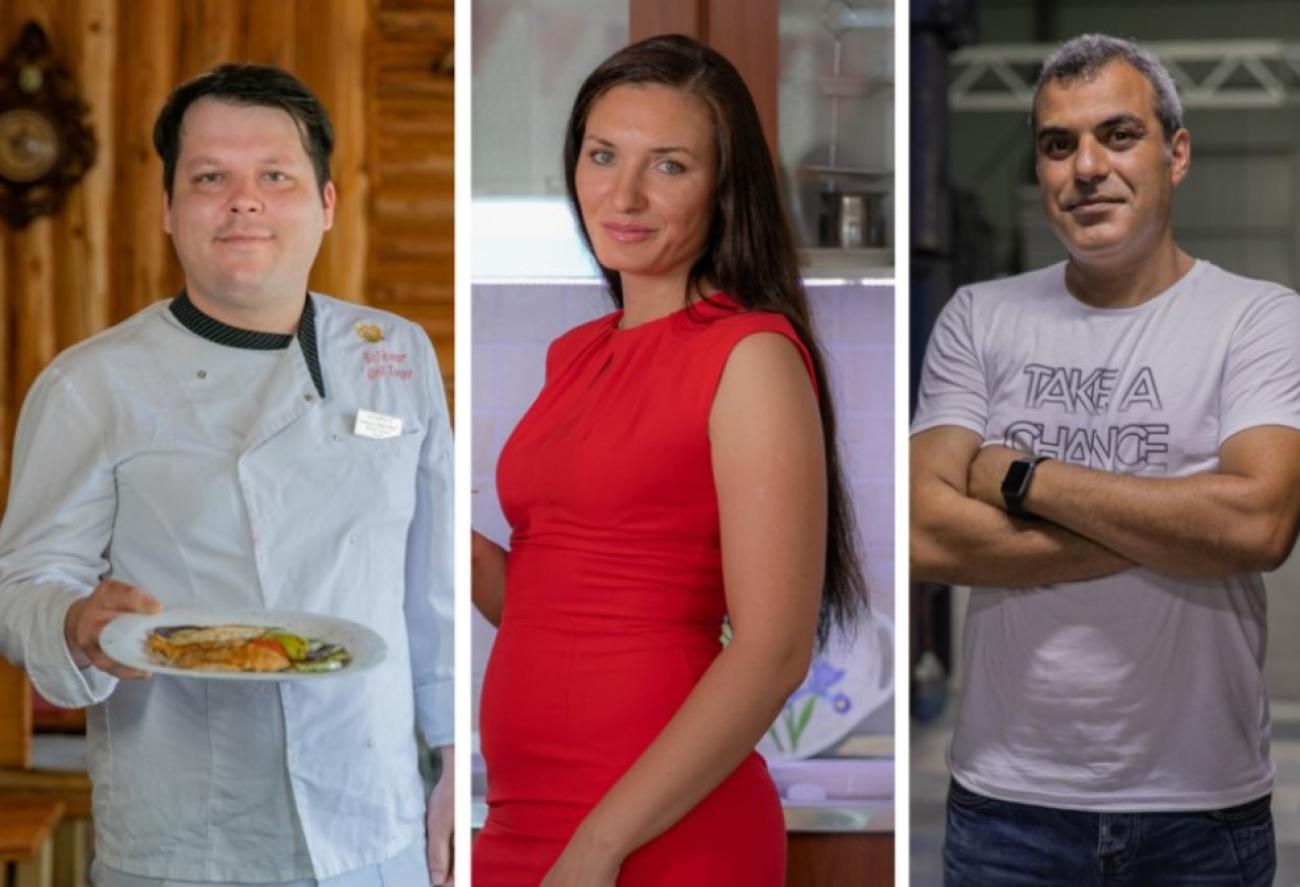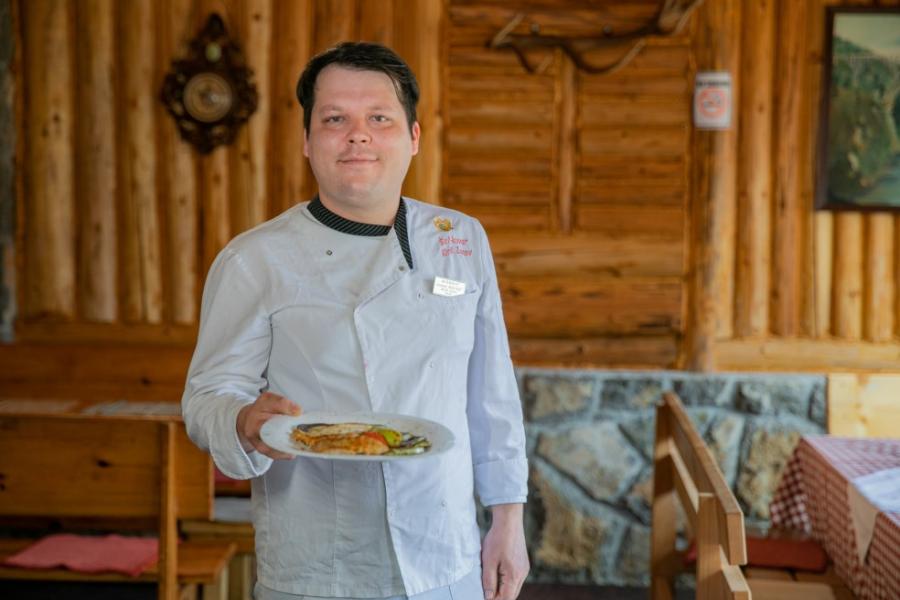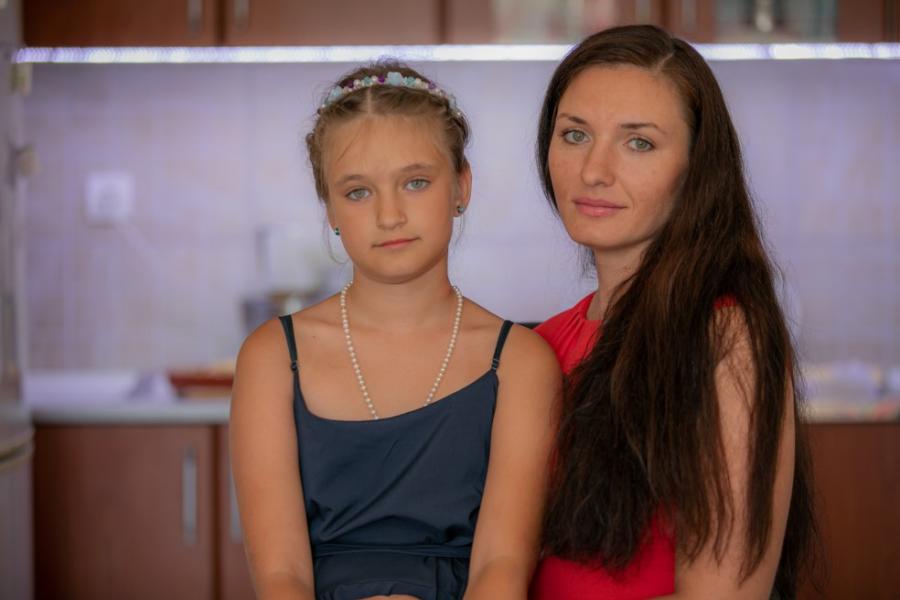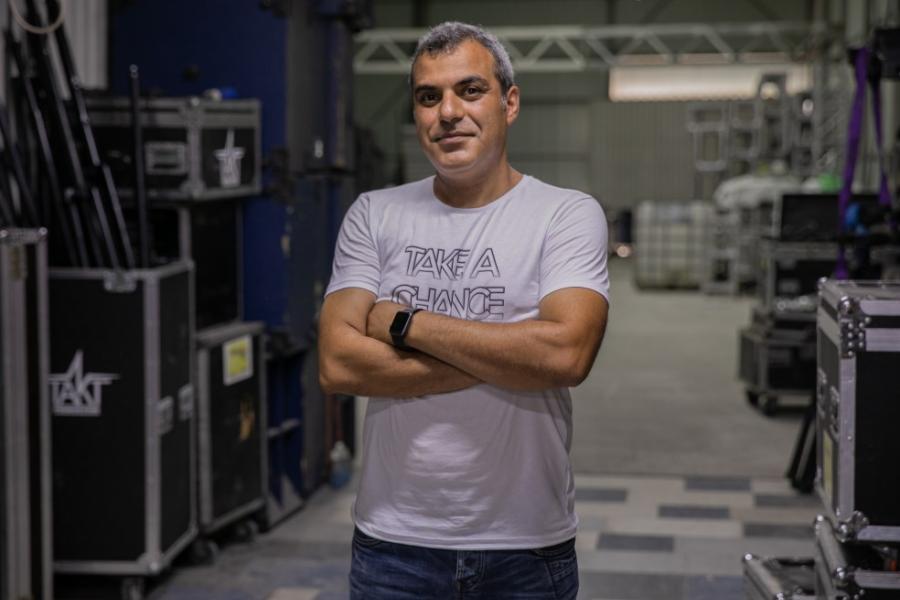A New Beginning: Three refugees make a new life for themselves in Montenegro

Three people with different backgrounds and one thing in common – Montenegro is their new home.
By Ana Puljiz
Each year, many people fleeing war, persecution and violence transit through Montenegro on their way to Western Europe. Since 2012, however, more and more have sought asylum here. Of the nearly 8,000 people who in 2019 initially stated an intention to apply for asylum in Montenegro, some 1,921 people went on to actually do so – almost a quarter of the total.
Kirill: UNHCR is a bridge between refugees and United Nations
For 28 years, UNHCR in Montenegro has helped refugees by providing legal and material aid, as well as psychosocial support, while at the same time working with Montenegro to develop its asylum capacities.
Montenegro’s open-door policy in the aftermath of the dissolution of former Yugoslavia paved the way for the integration of nearly 12,500 ex-Yugoslav refugees. This is a great example of how even small countries can protect people in need of refuge.
Adrian Edwards, UNHCR’s interim representative in Montenegro
“Today’s asylum environment is changing but UNHCR will continue to be a partner for Montenegro as it develops its asylum capabilities further,” said Edwards.
Since the establishment of an asylum system in Montenegro in 2007, 84 people have been given refugee status. While some of these have since left Montenegro, 31 continue to live here stably. Kiril, Olesia and Soheil are among those who have found refuge in Montenegro and embraced it as their new home. This is their story.

It has been two years since Kirill arrived in Montenegro seeking asylum. Kirill recalls being scared, confused and in disbelief that he would find a helping hand. Nonetheless, with a step by step approach and mostly due to his positive, adaptable and friendly nature, Kirill managed to settle in the small municipality of Zabljak. Even though the first few months after the arrival were uncertain, Kirill began to build a life in Montenegro – learning the language, interacting with the locals and making friends.
My first friends in Montenegro were the UNHCR employees. For me UNHCR symbolizes the bridge between United Nations and asylum seekers.
Kiril
Although this 28-year-old has many talents and skills, among which are a degree in psychology, experience in the army and a certificate for drone operation, Kirill decided to follow his true passion – cooking.
The culinary school was the best choice for me and my future. I am just happy to have a job I love. Montenegro is my new home; my tiny new home and I want to live here.
Kiril
Olesia: I’ve found my life in Montenegro
Olesia has a big passion for cooking as well. After escaping a war-torn country and finding refuge in Montenegro in 2015, she sought ways for making a living while managing to stay at home and look after her daughter and a baby boy. Since she was frequently baking cookies and preparing meals for her family and neighbors, Olesia decided to start a small bakery business.
A no-compromise approach regarding the quality of her ingredients reflects her personal life philosophy as well as care for her customers’ health and wellbeing. Other than showing resilience of spirit when faced with life challenges, Olesia puts a lot of effort into creating opportunities for herself and dreams of expanding her business one day.

I’ve found my life here. For me, there is no country more beautiful than Montenegro. I am not thinking about going back or moving anywhere else. I even spend my vacations in Montenegro, because the country really does have everything.
Olesia
Olesia, like many other vulnerable people around the globe, was impacted by the outbreak of the COVID-19 pandemic, which has hit refugees particularly hard, leaving many vulnerable and reliant on donor support to maintain their livelihoods. UNHCR, with the financial support of the European Union, has provided COVID-related food and hygiene assistance, as well as a 2-month rental subsidy to refugees and asylum seekers in Montenegro, under a regional project funded through the EU Instrument contributing to Stability and Peace. Olesia was among those who received the assistance, which has been crucial for alleviating the adverse effects of COVID-19 and in enabling refugees to be productive members of the community.
“It is heart-warming for us to see that with EU assistance Olesia and her family are managing to navigate during these difficult times of the global pandemic,” said Hermann Spitz, Head of Cooperation at the EU Delegation to Montenegro.
Covid-19 has affected around 21,000 refugees, asylum seekers and migrants in the Western Balkan region, putting reception and protection systems of the countries under additional pressure. The EU has shown strong solidarity with the most vulnerable, providing life-saving support.
We have allocated €700,000 for Montenegro as an immediate response to ease the effects of Covid-19 on refugees, asylum seekers and migrants. With our partners, UNHCR and IOM, we are helping people in need with adequate housing, medical, social, psychological and logistical support.
Hermann Spitz, Head of Cooperation at the EU Delegation to Montenegro.
Soheil: For me, one part of paradise is in Montenegro
For refugees, integration into the local community can be a solution to their plight and a chance to build a new life. Montenegro placed integration high on the policy agenda, with the aim of rendering refugees economically productive and self-reliant, all the while programming assistance in a way that respects their dignity.
When Soheil came to Montenegro he crossed paths with Pedja, an owner of a production house, who brought Soheil into the world of events management and production. Community support means everything to Soheil, as his integration was largely facilitated by the people he met on the journey. In the small workshop and in the large warehouse Soheil is hard at work on technical repairs, equipment management and addressing the various needs of clients.

“Working in the tech production requires a lot of skills and you have to know everything – from physical jobs to mechanics, software and repairing. However, it all pays off once you have created a harmony between sound and light,” said Soheil.
When speaking about his life and job in Montenegro, gratitude permeates through his words.
Montenegro is a beautiful country, I enjoy it for the weather, culture and people. One part of the paradise is Montenegro I can say to be honest. As you call it, your country is “domaći” (authentic). It’s a good country.
Soheil
As the end of a decade is marked by a new record high in the forced displacement globally (79.5 million), integration within the host community is often a life-saving option for those who are unable to return home. When host communities accept refugees with an open mind and a sympathetic approach, refugees are empowered to rebuild their lives and give back, socially and economically, to those who welcomed them with the open arms.



